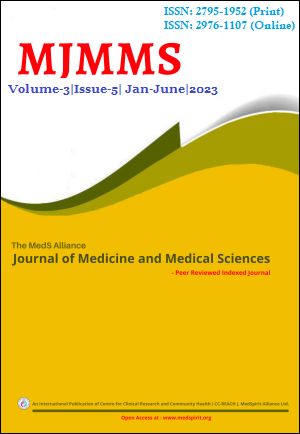A Study of Management of Adverse Reaction to Iodinated Contrast Media used in Computed Tomography at UCMS-TH
DOI:
https://doi.org/10.3126/mjmms.v3i5.59936Keywords:
Computed tomography, drugs, iodinated contrast mediaAbstract
INTRODUCTION: Iodinated contrast media is used in computed tomography imaging to enhance the visibility of blood vessels and tissues. They have distinct clinical effectiveness and toxicity profiles. Although low osmolar contrast media have made iodinated contrast media safer in recent years, adverse reactions can sometimes occur. The management of adverse reactions to iodinated contrast media is an important aspect of patient care during computed tomography examinations. The purpose of this study was to evaluate the management of adverse reactions to iodinated contrast media during contrast-enhanced computed tomography examinations at Universal College of Medical Sciences and Teaching Hospital, Bhairahawa, Nepal.
MATERIALS AND METHODS: A prospective, observational study was conducted on 323 patients at Department of Radiodiagnosis and Medical Imaging, Universal College of Medical Sciences and Teaching Hospital, Bhairahawa, Nepal, from December 15, 2022 to May 15, 2023. All data was obtained from the Department of Radiodiagnosis and Medical Imaging, as per the study inclusion criteria. The data were analyzed with statistical package for the social sciences version 20.
RESULTS: The mean age of study participants was 48.49±19.78 years. There were 34.67% male and 65.33% female patients involved in this study. Universal College of Medical Sciences and Teaching Hospital favoured a more strict approach, to determine the normal renal function and withhold metformin before iodinated contrast media exposure. 36.84% of patients had a history of previous adverse reactions, before undergoing contrast-enhanced computed tomography scans. Following iodinated contrast media administration, 94.74% experienced nausea and vomiting which was followed by mild urticarial (88.54%) and dyspnea (19.81%). Premedication protocol was predominantly implemented with antihistamine, pheniramine (73.1%), and corticosteroid, hydrocortisone (26.9%). Mild urticaria was treated with pheniramine (87.1%), nausea and vomiting was treated with metoclopramide (83.01%), dyspnea was treated by epinephrine, hydrocortisone and oxygen (9.38%).
CONCLUSIONS: Universal College of Medical Sciences and Teaching Hospital has established a standard protocol for the management of adverse reactions experienced by patients during iodinated contrast media administration. Premedication with antihistamines and corticosteroids was recommended for highrisk patients.
Downloads
Downloads
Published
How to Cite
Issue
Section
License

This work is licensed under a Creative Commons Attribution-NonCommercial 4.0 International License.




